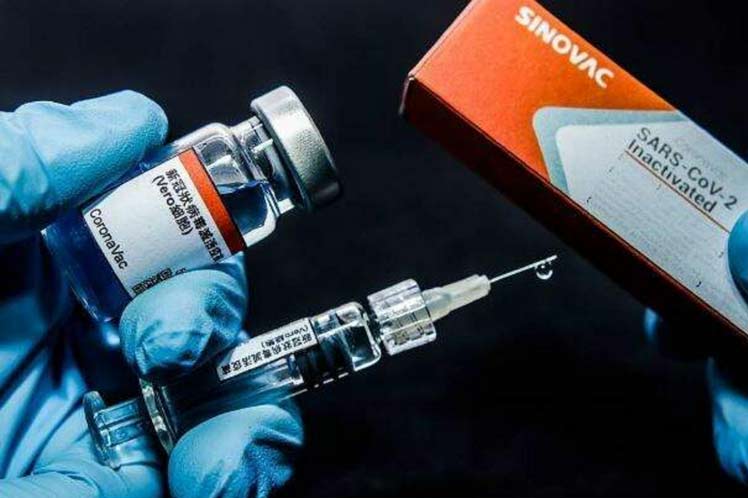
China Backs CoronaVac Vaccine, Says It’s Safe
Published on November 19, 2020 at 2:10 PM by Face of Malawi
Preliminary results come from a randomized clinical trial of Coronavac, in 744 volunteers between 18 and 59 years old, and revealed that antibody responses can be induced within 28 days after the first immunization, by administering two doses of the vaccine within 14 days interval.
The investigation, carried out by a Chinese team, identified the ideal dose to generate the highest immune responses in phases one and two of the tests, while looking at the side effects, which were mild and disappeared within 48 hours.
The scientists stressed that the phase three findings will be “crucial” in determining whether the immune response generated by Coronavac is sufficient to protect against SARS-CoV-2 infection.
According to the study, the persistence of the antibody response should be checked in future studies to determine how long protection against the virus will last.
As only healthy adults aged between 18 and 59 years participated in the tests, further investigations will have to be carried out in different age groups, as well as in people suffering from a previous medical condition.
“Our results show that Coronavac is able to induce a rapid antibody response in about four weeks of immunization by administering two doses of the vaccine 14 days apart“said the study’s co-author, Fengcai Zhu, a researcher at the Jiangsu Provincial Disease Control and Prevention Center in China.
“We believe this makes the vaccine suitable for emergency use during a pandemic. However, further studies are needed to see how long the antibody response remains after vaccination,” said Zhu.Complementary reflections
The expert added that “in the long term, when the risk of covid-19 is lower, the findings suggest that administering two doses one month apart, rather than leaving two weeks apart, may be more appropriate to induce immune responses. stronger and potentially longer lasting “.
Coronavac, one of 48 candidates for vaccines against the new coronavirus currently in development, is based on a SARS-CoV-2 viral strain, originally isolated from a Chinese patient.
This first phase of the tests was carried out in Jiangsu province (China), with people with no medical history and who had not traveled to areas with a high incidence of Covid-19.
Gang Zeng, one of the authors of the investigation, at the Sinovac Biotech center in Beijing, pointed out that Coronavac “could be an attractive (vaccine) option because it can be stored in a standard refrigerator between two and eight degrees“, something typical of many existing immunizers, such as influenza.
“The vaccine could also remain stable for three years, stored, which would offer advantages for its distribution in regions where access to refrigeration is difficult“he noted.
The authors identified some limitations in the study, such as the fact that the phase two trial did not evaluate the responses of so-called T cells (cells of the immune system), which represent another variant of the immune response to virus infections.
Source: Izzsso


